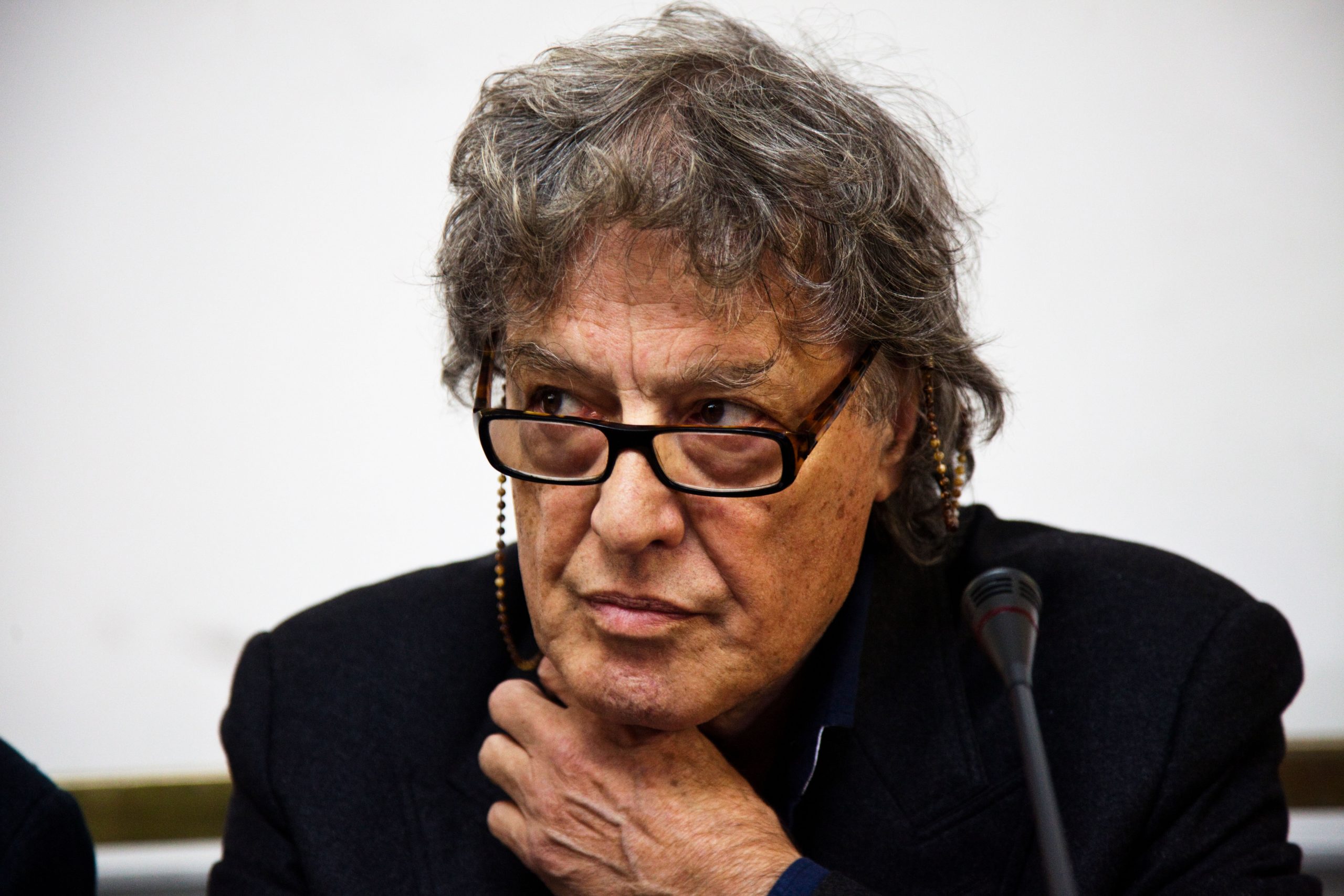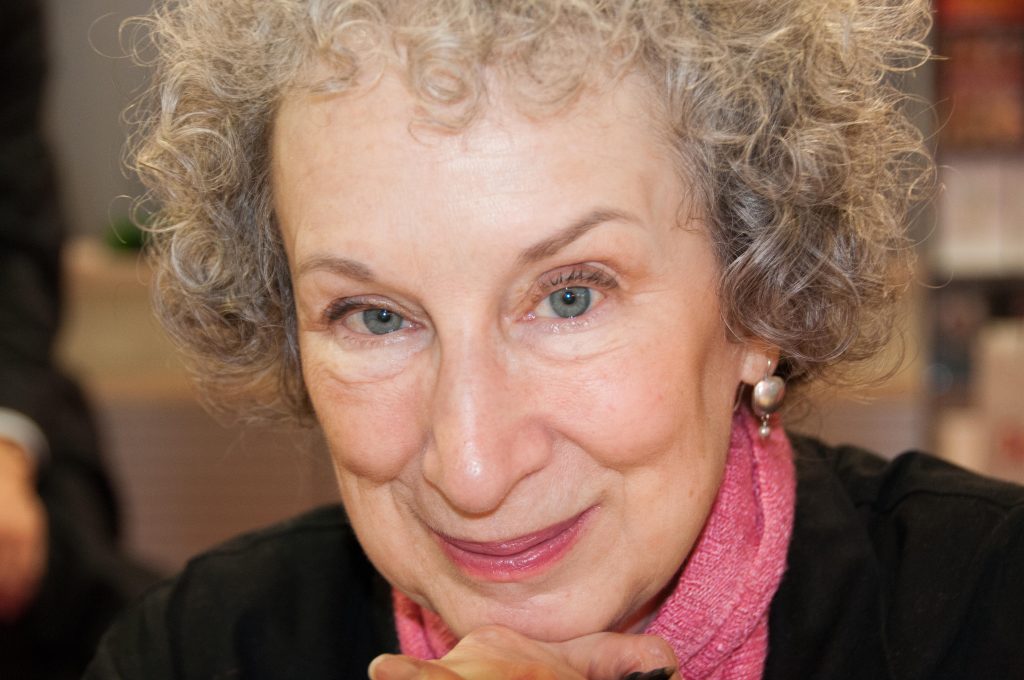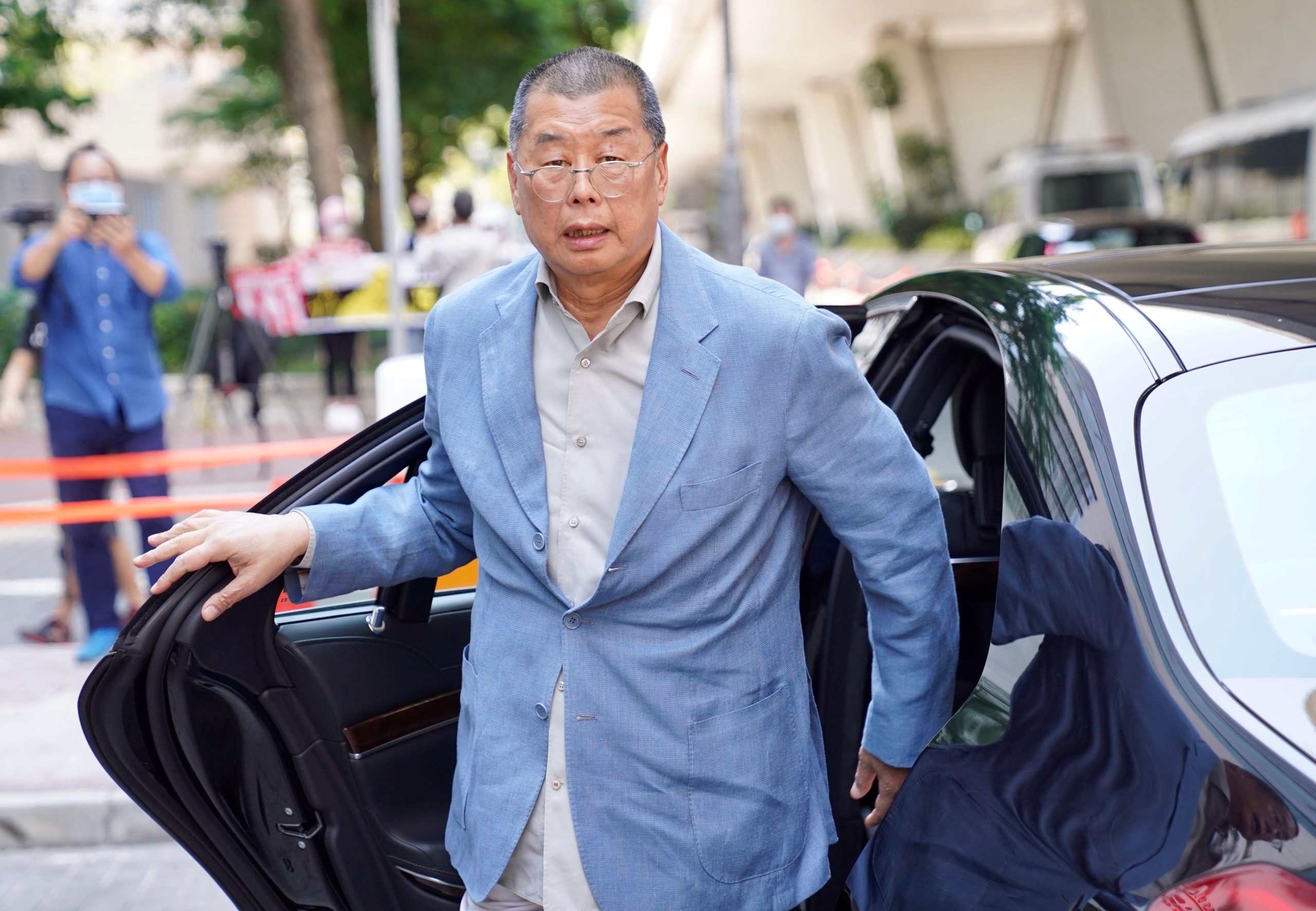30 Mar 22 | Hong Kong, News and features, Volume 51.01 Spring 2022
Jimmy Lai Chi-Ying, Hong Kong’s 74-year-old self-made billionaire, is a dissident. His cause is freedom. For championing this cause, he has been jailed since December 2020. One of the crimes he was found guilty of was lighting a candle in public to commemorate the 1989 Tiananmen Square massacre, when thousands were slaughtered. His real sin, however, was publishing Apple Daily, Hong Kong’s lone voice for freedom. This voice was smothered in June 2021 with the jailing of its senior journalists.
Lai could have remained free – he has homes in Paris, London, Kyoto and Taipei – but chose to stay in solidarity with the Hong Kong democrats being prosecuted. The UK abandoned Hong Kong in 1997 on China’s promise that its seven million-plus people would have “a high degree of autonomy” with “Hong Kong people ruling Hong Kong”.
However, the democrats’ demand for China to honour this pledge was rebuffed from the start and dealt a final blow in 2020 when Beijing imposed direct rule by promulgating a vague and sweeping National Security Law along with an electoral system modelled on Iran’s that allows only handpicked candidates. Virtually all democrat leaders have since been jailed.
Lai was born in Guangzhou. He escaped communist rule at the age of 12 by stealing his way into Hong Kong, hidden in the bottom of a small fishing boat. By the time he was in his 20s, he had risen from a child labourer to owning his own business.
He started Giordano, an international clothing retailer. Along the way he learned English – initially by reading the dictionary while living in the factory where he worked – and took to the brand of free-market economics espoused by Friedrich Hayek and Milton Friedman. He credited his success to the freedom he enjoyed in British Hong Kong. He vows to fight for this freedom so others may have the same opportunities.
Like most Hong Kong people, Lai’s political awakening came in the spring of 1989 when a democratic movement led by students erupted in Tiananmen Square in Beijing. He was sympathetic to their aspirations and lent them support by raising money through his Giordano stores.
After communist tanks mowed down demonstrators on 4 June 1989, he dedicated himself to upholding their torch of democracy by going into publishing in Hong Kong, where the press remained free.
He first launched Next, a weekly magazine, in 1990, and then Apple Daily on the eve of Hong Kong’s transition to Chinese rule. With their bold and fiercely independent editorial stance, both publications enjoyed wide readership and were successfully “cloned” in Taiwan. As the communists tightened their grip on Hong Kong, Lai was first forced to sell his controlling interest in Giordano and then his publications were subjected to orchestrated advertising boycotts. Though financial losses piled up, Lai did not waver. Readers’ loyalty remained to the end: when Apple Daily printed its last edition of one million copies on 24 June 2021, thousands of people waited in the middle of the night for it to roll off the press.
Lai is now represented by the London-based lawyer Caoilfhionn Gallagher QC. She has called Lai “a man of courage and integrity” and vowed to “pursue all available legal remedies to vindicate Mr. Lai’s rights”.
Lai’s wife Teresa is a devout Catholic. He himself converted to Catholicism when Hong Kong came under Chinese rule. China’s communists, often godless, are known to be ruthless, but in this couple they may have met their match. Because of his faith, Lai does not seek temporal salvation. He quoted the 15th-century German priest Thomas a Kempis in a letter to a friend from prison: “If thou willingly bear the Cross, it will bear thee, and will bring thee to the end which thou seekest, even where there shall be the end of suffering; though it shall not be here.”[/vc_column_text][vc_column_text]*****
‘I don’t want my life to be a lie’ – letters from Lai’s prison cell
Jimmy Lai has been in jail since December 2020. He has told friends and associates from his cell that he does not want to turn his “life into a lie” and willingly pays the price for upholding “truth, justice, and goodness”. He said he bears this price gladly and sees it as God’s grace in disguise. Here are excerpts from some of his prison letters.[/vc_column_text][vc_column_text]‘The muted anger of the Hong Kong people is not going away’
Apple Daily published its last edition of one million copies on 24 June 2021. This was how he reacted to it from prison. While deploring what he called “this barbaric suppression”, he was weighed down with guilt that his staff were incarcerated on his account and wished he could share “the pain of the cross” they bear. He vowed to find a spiritual way to help them.
The forced closure of Apple Daily Hong Kong showed clearly what [a] shipwreck life in Hong Kong has become for them. The damage done [by] the Hong Kong government and Beijing’s legitimacy long term is much greater [than] the temporary benefit of quieting down the voice of freedom of speech.
Yes, this barbaric suppression intimidation works. Hong Kong people are all quieted down. But the muted anger they have is not going away. Even those emigrating will have it forever. Many people are emigrating or planning to.
This Apple Daily shutdown only aggravates it, making it certain to people that the hopelessness of Hong Kong is irreversible. The more barbaric [the] treatment of Hong Kong people, [the] greater is their anger, and power of their potential resistance; [the] greater is the distrust of Beijing, of Hong Kong, [the] stricter is their rule to control.
The vicious circle of suppression-anger-and-distrust eventually will turn Hong Kong into a prison, a cage, like Xinjiang. World, cry for Hong Kong people.
Pastor Lee came to visit… Told me he had visited Cheung Kim Hung, our CEO, and Lo Wai Kong, our Chief Editor. They are both being remanded. Cheung, being a devout Christian, is doing fine. But Lo, who has no faith, is miserable.
What I can do to help him? Send him a Bible? But Bible is no faith, not panacea. Maybe I should ask Cardinal Zen to visit him to see what we can do for him.
It would be disingenuous to say that by creating Apple Daily I have put him in this situation. But I do have a guilty feeling and want to share his price of his cross, which is weighing too heavily on him. There must be something I can do to help. I will not cease until I find a way.
“If we suffer courageously, quietly, unselfishly, peacefully, the things [that] wreck our outer being perfect us within, and make us. And as [we] have seen, more truly ourselves.”
‘There is always a price to pay when you put truth, justice and goodness ahead of your own wellbeing’
Lai wrote in July 2021 to console his hotel staff in Canada for their suffering during the pandemic and held out the hope that soon he could share “the coming prosperity” with them. He also updated them on his life in prison, telling them not to worry about him, though when they “pass by a church, do go in and pray for me”.
Dear Bob,
If you are worry[ing] about me, please don’t. I am keeping myself busy reading the scriptures, gospels, theology and books of the saints and their lives… Life is peaceful and edifying… There is always a price to pay when you put truth, justice, and goodness ahead of your own comfort, safety and physical wellbeing, or your life becomes a lie. I choose truth instead of a lie and pay the price. Luckily God has made this price a grace in disguise. I am so grateful.
So, don’t worry about me. However, when you pass by a church, do go in [and] pray for me. Believers and non-believers, the sun shines on you the same. So the Lord will listen to you the same. Thank you! Hope to see you soon,
Cheers,
Jimmy.
‘I am changed… I can’t see myself going back to business again’
Lai wrote to a friend, James, in September 2021, saying that, by clinging to Christ, his life in prison “is full” and spiritually “at peace”. However, he was worried about his wife, Teresa, whom he said was weighed down by grief.
James,
I am doing fine, keeping myself busy, studying gospels, scriptures, theology and books on the saints and lives and prayers, touching the fringe of Christ’s cloak to live, so to speak. Life is full and at peace. I am learning and changed a lot. Can’t see myself going back to business again. All have to depend on others.
I do worry about my wife Teresa. She has lost a lot of weight under the grief of my situation. Lucky she has God [to] abide [with] her. May God bless you all.
Cheers,
Uncle Jimmy
‘But with her prayers, she will slug it through’
In October 2021, Lai wrote to a business associate about his happiness when his family visited him. He urged him to “keep writing”.
I am doing fine here. Happy to see Teresa, Claire, Tim and Ian and my brother… Teresa looks weak and weighed down by grief. But with her prayers, she will slug it through.
I am keeping myself busy here. Spiritual study, drawing and trying to improve my English writing skill. Take care!
So sweet of you to write me. Please keep writing. May God be with you all! Cheers, Uncle Jimmy
‘If thou willingly bear the Cross, it will bring thee [that] which thou seekest… ’
In a November 2021 letter to a friend, Lai copied the following quote from the 15th-century German priest Thomas a Kempis, author of The Imitation of Christ.
“If thou willingly bear the Cross, it will bear thee, and will bring thee to the end which thou seekest, even where there shall be the end of suffering; though it shall not be here.
“If thou bear it unwillingly, thou makest a burden for thyself and greatly increaseth thy load, and yet thou must bear it.”
‘Lord, remember those who shed their blood in Tiananmen Square’
Lai was sentenced 13 months in jail for attending the vigil in Victoria Park, Hong Kong, on 4 June 2020 that marked the 31st anniversary of the Tiananmen Square massacre. He protested his innocence by reading the following statement in court before he was sentenced. He appealed to God to grant the young men and women who died in Tiananmen their redemption.
I did not join the 4 June vigil in Victoria Park. I lit a candle light in front of reporters to remind the world to commemorate and remember those brave young men and women who 31 years ago in Tiananmen Square put the truth, justice and goodness above their lives and died for them.
If [to] commemorate those who died because of injustice is a crime, then inflict on me that crime and let me suffer the punishment of the crime, so that I may share the burden and glory of those men and women who shed their blood on June 4th to proclaim truth, injustice and goodness.
Lord, remember those who shed their blood, but do not remember their cruelty. Remember the fruits those young men and women have borne because what they did and grant, Lord, that the fruits these young men and women have borne may be their redemption. May the power of love of the meek prevail over the power of destruction of the strong.
This article and Lai’s letters appeared in the 50th anniversary issue of Index on Censorship magazine, alongside a picture that Lai drew of Jesus Christ on the cross. They were published on 15th March 2022. Click here for options on how to see and read the article in full.
29 Mar 22 | News and features, Russia, Ukraine
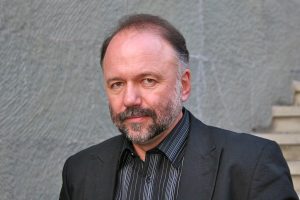
Celebrated Ukrainian author Andrei Kurkov. Photo: Juerg Vollmer
After five days of silence, my friend, a writer, journalist, and historian in occupied Melitopol, finally sent me a message. I’d been afraid something had happened to her, that I would never hear from her again. But, thank God, it turned out that she’d simply had no internet access or telephone reception. I asked her to keep a diary of life under occupation, to take photos on her smartphone, and to send all that to me. I would keep it safe. The original diary could then be destroyed.
She’s been living under occupation for more than two weeks and doesn’t set foot outside, for fear of being captured. The director of the Melitopol History Museum, Leyla Ibragimova, a Crimean Tatar, has already been kidnapped. They terrorised her, interrogated her, confiscated her and her family’s phones and computers — then released her. The next morning they picked her up for another interrogation. Activists and journalists are disappearing in the occupied territories. FSB agents walk the streets with lists of names and addresses in hand. These lists were prepared before the start of the war.
Oleg Baturin, a journalist from Kakhovka, was abducted by the Russian military. Eventually, he was released — after eight days of beatings and torture, of demands to go over to the Russian side, of hunger and thirst, of humiliation. Those who beat him hid their faces and forbade him to raise his head and look at them. Is this today’s Russia? Yes. But it is also the Soviet Union of the 1930s. These are the practices of the Gulag. The Ukrainian author Stanislav Aseyev wrote an entire book about the torture camp in Donetsk. After two years of captivity in this camp and in the prison run by separatists, he had plenty of material. He studied closely those who beat and abused Ukrainian prisoners of war and others who had been seized on the streets and brought to this already infamous concentration camp, called “Isolation.” Years ago, the place had been a factory for the manufacture of insulation for electrical wires. Later, under the same name, it became a contemporary art centre. When the separatists, aided by the Russian military, captured Donetsk, they converted it into a concentration camp, with a set of chambers in which all their detainees were tortured. Stanislav Aseyev’s book has already appeared in several languages, including English. I highly recommend it to anyone who seeks to better understand what went on and continues to go on in the separatist “republics” since 2014. And now the same things are happening in the territories occupied by the Russian army.
We’re well into 2022. Books about what is happening now in Ukraine are already being written, but are not yet published.
The unsuccessful attempt to annex or, to put it plainly, occupy all of Ukraine has angered Putin and now, judging by the military actions of the Russian army, Russian generals have been ordered to destroy cities and villages, to kill civilians, and simply to make sure that Ukraine ceases to exist.
This is not the first attempt to destroy Ukraine and Ukrainians. In the late 1920s, Ukrainian peasants refused to join collective farms, and for this the Soviet government deported 250,000 families to Siberia. In 1932-1933, as punishment for the same individualism and unwillingness to become part of Soviet collective agriculture, all reserves of wheat and, indeed, all sources of nourishment were confiscated from Ukrainian peasants, leaving them with no food for the winter. Some seven million Ukrainians perished during this artificial famine organised by Moscow.
In those same years, the Soviet government decided to destroy Ukrainian culture. Nearly all the country’s leading writers, poets, and playwrights were arrested, sent to Solovki in the north of Russia, and shot. In Ukrainian literary history, the authors of this period are referred to as the “Executed Renaissance.” These people had tried to revive Ukrainian culture after decades of official prohibitions on the use of the Ukrainian language and on anything distinctly Ukrainian in tsarist Russia. Soviet communists had decided that the revival of Ukrainian culture posed a danger to the Soviet Union. And alongside the writers, poets, and playwrights they executed, the NKVD also shot many artists and theatre directors. The works of Mykhaylo Semenko (1892-1937), Maik Yohansen (1895-1937), Mykola Zerov (1890-1937), and dozens of other Ukrainian writers killed in that purge could only be published again after the collapse of the USSR.
Today’s Ukrainian intellectuals face the same danger. That goes for writers and journalists and historians. Anyone who believes that Ukraine should remain independent and become part of Europe is already an enemy of Russia. Culture is what cements a nation. Ukrainian culture has only just begun to revive after 70 years of Soviet rule, 70 years of censorship and persecution.
But today that culture and its representatives are the targets of Russian bombers. The attacks on Kyiv have killed Artem Datsyshyn, the principal dancer of the National Opera of Ukraine, and the famed actress Oksana Shvets. Near Kyiv, in the village of Bucha — home to a number of writers and composers— Oleksandr Kislyuk, a well-known translator from Ancient Greek and other languages, a teacher at the Theological Academy, and a professor at the Drahomanov Pedagogical University, was shot by Russian soldiers on the threshold of his house. It is thanks to him that Ukrainians can read the works of Aristotle, Tacitus, Thomas Aquinas, and other classic authors in their own language.
Now Oleksandr Kislyuk has been murdered and one wonders who will finish the translations he was working on in his final days.
Among those killed in this war are at least three painters. There are also photographers and scientists, musicians and architects, schoolteachers and university professors.
For almost a month, now, Russian bombers have been aiming directly at schools and universities, theatres and libraries.
Near Kyiv, in the village of Ivankiv, a bomb hit a historical museum that housed the works of famous Ukrainian primitive artist Maria Prymachenko (1909-1997). While the museum burned, locals carried her paintings out of the fire. Now those canvases are kept in the homes of people who live next to the ruined museum.
The Ukrainian Ministry of Culture has sent an order to all museums to prepare their exhibits for evacuation to Western Ukraine. Some museums managed to pack up their collections, others simply lowered them into basements and underground rooms. But none have so far been evacuated. The most important thing is to evacuate people from cities under constant bombardment and artillery fire.
For two weeks, Ukrainian writers tried to extract their colleague, the Russophone prose writer Volodymyr Rafeyenko, from the village of Klavdiyevo, which was practically destroyed by the Russian army. He is a refugee twice over. First, in 2014, he had to leave his apartment in Donetsk. Since then, he and his wife had been living in Klavdiyevo, at the dacha of the Ukrainophone writer and translator Andriy Bondar. Klavdiyevo has been all but flattened by Russian artillery and is surrounded by their tanks. Volodymyr and his wife spent more than a week in the basement of a half-collapsed house. At long last, they managed to break out of encirclement and volunteers took them to Kyiv.
Kyiv is also being hit by rockets, but not so intensively. The chances of survival are greater in Kyiv. There, in his apartment near the railway station, the publisher Mykola Kravchenko* sits at his table and works. He’s editing a novel by a young woman from Lutsk, titled Porcelain Doll. The novel concerns domestic violence. He knows that he won’t be able to publish it anytime soon, but he continues to work in order to preserve his psychological balance, in order to think less about the war.
Yet the war, including the violent attack on Ukrainian cultural heritage, continues. The number of bombed-out churches is already in the tens.
The Ukrainian Ministry of Culture is still at work and every day its employees collect new information about the historical sites and cultural institutions destroyed by the Russian army.
The list of Russia’s crimes against Ukrainian culture is constantly being updated.
* Editor’s note: Not the Ukrainian political figure of the same name who died in the early days of the Russian invasion of Ukraine.
28 Mar 22 | News and features, Russia, Ukraine

Photo: Reporters inside Kyiv’s Buena Vista Social Bar
There’s always a bar. In Kyiv, in 2022, it’s the Buena Vista Social bar, bang next to a Ukrainian police checkpoint which is both funny ha-ha and funny peculiar because there is a nationwide ban on the sale of alcohol. Sssh. It’s a joyful shebeen, Cuban-themed, run by Maks, and you never quite know what’s available to drink and who’s going to be there. All the women have a past; all the men have no future. You get the vibe.
Early on in the war, a fellow regular was a big bloke with a thick moustache and a mane of bubbly, curly hair, often seen with his fixer, a Ukrainian freelancer. I never spoke to him but I clocked him as someone who had presence, who was an interesting character, who I had probably seen in Sarajevo or somewhere like that. He was Pierre “Zak” Zakrzewski, she Sasha Kuvshynova, and they were both killed on 14 March 2022 when their vehicle came under fire in Bucha – pronounced Butcher – to the northwest of Kyiv. British journalist Ben Hall was wounded in the same attack. They were working for Fox News, something Zak, 55, who had been brought up in Ireland, had mixed feelings about. But he knew the risks of war too well and made a decision that working for a big corporate was better risk-management than being freelance. His co-workers at Fox loved him, giving him an award as “Unsung Hero” after he helped get Afghan freelancers out of Kabul.
Sasha was 24, bold and fiercely smart. After her death, her dad said that she learnt to read at the age of three and picked up English from reading restaurant menus while on family holidays. She was a fanatical photographer with five stills cameras, had founded a music festival for up-and-coming jazz musicians, worked as a DJ and wrote poetry. She wanted to make movies.
If you don’t like free expression in a democracy, you blow up the TV tower. The Kremlin’s first journalist victim was Yevhenii Sakun, 49, a camera operator for Ukraine’s LIVE station, on 1 March. The Russian army sent in four missiles in the evening, killing a worker in the TV tower complex and four civilians. The next morning I saw the people from the morgue take away the bodies of a middle-aged man and a mother and her child with my own eyes.
The most dangerous area of Kyiv is the northwest suburbs, where the Russian army’s offensive, driving down through Chernobyl, has come closest to the capital. Reporters seeking human stories, of refugees fleeing with their dogs on a lead or their cat in a box, went repeatedly to Irpin. Fearing further Russian advance, the Ukrainian army flooded the river plains near the suburb and blew up the most southerly bridge, leaving people to pick their way across the skeleton remains. Once beyond that crossing, there is a second bridge. That’s where US film maker Brent Renaud, 50, originally from Little Rock and formerly of the New York Times, found himself, filming refugees running for their lives. Brent knew what he was doing, having filmed and reported man’s cruelty to man in Iraq, Afghanistan, Libya: all the nice places.
At Irpin, at the second bridge, the Russian army shot him in the neck and he died of his wounds.
Oksana Baulina was one of those intensely brave Russians who were on Team Navalny before their champion was arrested on fake charges and the organisation broken up. Oksana, 43, was declared a “terrorist” by the Kremlin and had to flee Russia. She set up as a reporter and film maker in Poland and reported on the war. When Russian artillery smashed into a shopping centre in Podil, in the northwest of the city, she was killed.
To be honest with you I have done my best to avoid writing this piece for days now because it can only fill one with gloom to think of these brave truth-tellers sent early to their graves by the mobster in the Kremlin. But my pals and I in the Buena Vista are buoyed up the thought that we are in Ukraine exactly because Vladimir Putin does not want us to be here. And on that point, Mr Putin, do fuck off.
And the rum is good.
There is, also, the line from Tom Stoppard’s great play, Night And Day, which I quoted on Twitter while hurrying back from the bar just before – well, actually, just after curfew – had fallen. This, from memory, is how it goes, how the lover of the dead young journalist, played by Diana Rigg, killed on the frontline denounces the false romance of journalism, “it’s not worth the heart-break beauty queen or the crossword and it’s definitely not worth the leader.”
And the old hack, played by John Thaw, replies: “Yes, you’re right. But also the other thing. People do awful things to each other. But it’s worse in places where everybody is kept in the dark. Information is light. Information, in itself, about anything, is light.”
RIP Zak, Sasha, Yevhenii, Brent and Oksana.
25 Mar 22 | Czech Republic, Opinion, Russia, Ruth's blog, Ukraine, United States
“We will not be intimidated or pushed off the world stage by people who do not like what we stand for, and that is, freedom, democracy and the fight against disease, poverty and terrorism.” — Madeleine Albright (1937-2022)
This week one of those special people passed away. A woman who broke glass ceilings, whose leadership inspired so many others, a woman who knew what she stood for and was determined to fight for what she knew to be right. She had a life well lived and has left her mark on the world. The reality is our society is lessened by her passing, but we were lucky to have her, and we so nearly didn’t.
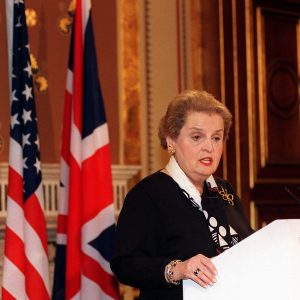
Former US Secretary of State Madeleine Albright. Photo: Fiona Hanson/PA Images
Madeleine Albright was born Marie Jana Korbelová, in Prague in 1937, to a Jewish family. Her family fled to London in 1939 when the Nazis invaded. They converted to Roman Catholicism and hid their true identity for decades. The first female US Secretary of State only discovered the truth and the fact that 26 members of her family had been murdered in the Holocaust as an adult. At the end of the war her family chose to return to Czechoslovakia, but this proved short-lived and they were forced to flee the Communist regime in 1949 and seek asylum in the States.
As traumatic as her early life was, Marie Jana Korbelová did more than most to shape the future, to find hope and to cherish the democratic values that were stolen from her and her family. Her personal story and her impact were exceptional. But reflecting on her life has caused me to think a lot about the Children’s Memorial at Yad Vashem, Israel’s Holocaust Museum.
There is a single candle surrounded by mirrors. The reflection of each flame represents a life not born – a story not told. It highlights, in simply imagery, the lives that were extinguished, the families that were destroyed and, heartbreakingly, the children never born because their parents had been murdered. We have no idea of what the world lost because of the Shoah. The poetry and books not written, the art not created, the scientific discoveries not made.
Which brings me to the horrors we see every day on our news. The images of the death and destruction in Ukraine. Lives of every Ukrainian citizen have been turned upside down. We see daily reports of war crimes. Of children being killed, of journalists being kidnapped, of humanitarian aid being blocked.
In Ukraine today, the daily horrors shock and upset us all but for me it is also the devastation of the lives not lived. The talent that is being brutally removed from our world. Our collective society is being lessened because of their deaths and those that will now never be born. We will never know what we have lost. We can only hope that among those that survive there will be someone as inspirational as Madeleine Albright.
24 Mar 22 | News and features, Russia, Ukraine
A Ukrainian journalist detained by Russia’s FSB while reporting on the invasion of the country has been forced to record a video saying that she had not been held captive and that her captors had actually saved her life before being released.
Victoria Roshchina, who works for the hromadske news channel, was released on 21 March, nine days after she went missing in the occupied city of Berdyansk en route to Mariupol. Four days after she went incommunicado, hromadske learned that she had been detained by Russia’s FSB security forces.
She has now returned to Zaporizhia, an area controlled by the Ukrainian government, where she will rejoin her worried family.
After her release, pro-Russian media and Telegram-channels shared a video in which Roshchina denied she had been held in captivity and that the officers had saved her life.
Her employer said that the video was filmed under coercion of the Russian occupiers and that the reporter would tell the true story in due course.
We reported about Roshchina’s reports from the front line and how she had been forced to hide from Russian tanks.
Although Roschina has been freed, the whereabouts of other journalists reporting from the front line is uncertain.
Renowned Ukrainian photojournalist and documentary filmmaker Maks Levin disappeared on 13 March in the Vishgorod district, near Kyiv. There had been intensive fighting in the area and it is assumed he has been injured or captured by Russian troops.
Levin has worked for the BBC, Reuters, the Wall Street Journal and new website LB.ua among others.
Index on Censorship calls for the immediate and unconditional release of all journalists held by the Russian forces and for all parties to ensure the safety of media reporting on the war.
22 Mar 22 | News and features
My nine-year-old granddaughter Lucia is a miracle. She speaks Russian fluently, without any taint of foreign accent. Paradoxically, she has never been to Russia. She was born in Covent Garden, London, and now lives in Bethnal Green. You can detect in her Londoner’s English a trace of a Yorkshire accent picked up from her father.
It’s not difficult to explain this miracle. Her Russian came to her, first, from her Moscow-born mother. My daughter arrived in England when she was the same age as Lucia is now. She has managed to retain her Russian despite her schooling in the UK. Lucia has also learnt her Russian while frequently spending time with me and my wife – we both emigrated from Russia when we were in our late twenties. The decision to emigrate four decades ago had cost us our Russian citizenships.
And so, since her early years my granddaughter not only heard Russian spoken at home but also learned to read – from the books that we ourselves used to love in our childhood. She fell in love with Pushkin’s poems and Chekhov comic stories, gothic tales of Gogol’s and absurdist children’s poems by Chukovsky and Kharms; she became a great fan of Winnie the Pooh not only in English, but also of its brilliant Russian version created by Boris Zakhoder. Later Lucia was introduced (through YouTube and other channels) to witty, funny and inventive children’s movies produced by independent Russian filmmakers. In short, she immersed herself in the world of images, vocabulary and ideas that have been shared by generations of children of the Russian liberal intelligentsia who used to regard the independent spirit of Russian literature as the best defence of their children’s consciousness against the onslaught of corrupt officialdom.
Lucia couldn’t describe the exact image of this dreamy Russia she had formed in her mind. What kind of mental construction could a child create out of the avalanche of words, pictures and ideas she had avidly been absorbing from books and films in Russian? Is it a fairyland with witches’ gingerbread huts on chicken legs or the one with Stalin’s skyscrapers looming grimly over old Moscow?
Each time when I heard Russian words streaming out of the mouth of my English granddaughter I felt as if I were present at some spiritual seance. Was she possessed by some Russian speaking ghosts? Should she be exorcised? But if it were a ghost, it was a benevolent one. The image of her fictional Russia was surely bright, enchanting and intriguing. For Lucia, it was the ideal country, because it was the place of her beloved mother’s childhood. It had also incorporated a dream of my sweet youth about Russia as the land of the free. Lucia was cherishing this dreamy land and wanted to see for real all that she had heard and read about. There were family plans for a trip to Russia, to celebrate New Year’s Eve in snowy festive Moscow.
And then, when Russia invaded Ukraine on Thursday 24th February something disastrous happened. On the Friday Lucia came back home from her primary school in Columbia Road in tears. School children were shown documentary shots depicting the brutality of the Russian invasion in Ukraine. She hasn’t been prepared for the shock. She hasn’t yet learned to separate the nation and its spiritual manifestations from the national government and its apparatus of suppression. What she saw was just the outright destruction of her fictional ideal Russia by the Kremlin’s dream murderers and mother-tongue abusers.
Zinovy Zinik is a Russian-born novelist, short-story writer and essayist. His fiction includes the novels The Mushroom Picker (1987), History Thieves (2010) and Sounds Familiar (2016)
18 Mar 22 | News and features, Russia, Statements, Ukraine
Victoria Roschina (or Roshchina), a journalist who works for the Ukrainian news channel we wrote about earlier this week, has gone missing while reporting on the war in the country and is believed to have been detained by Russian FSB security forces.
On 11 March, according to hromadske, Roschina left the city of Energodar to travel to Mariupol to report on what was really going on in the city, which has been shelled by Russian troops every day for more than two weeks.
The TV station has been unable to contact Roschina since 12 March when she is known to have been in the occupied city of Berdyansk.
On 16 March, the station learned that Roschina had been detained by the Russian FSB but nothing is known about her whereabouts.
“For two days we made every effort to release the journalist in a private manner. But it turned out to be ineffective. Therefore, we call on the Ukrainian and international community to join in the information and action to the release of hromadske journalist Victoria Roschina,” the channel said in a statement.
The channel (whose name means public) was founded originally as an independent TV station and prides itself on its freedom from control by oligarchs or the state even after Yanukovych was forced to flee by the “Maidan” protests of 2014. Over the years journalists at the station have adapted to shifts in the media landscape and now streams topical videos on YouTube and Facebook with special reports every Tuesday and Thursday.
In a Facebook post published before she disappeared, Roschina said she would “never forgive Russia”.
She wrote: “The other day I came across a column of Russian tanks in the Zaporozhzhya region. On the way there I saw a burnt car, a little further another with the burnt body of a man next to it. As it turned out, he was a civilian from the village.
“Then – the roar of tanks, the white letter Z, the flag of the Russian Federation. They came out of the turn and headed in our direction.
“Me and the driver switched to reverse gear and tried to turn around. The Russians began to ‘work’ [e.g. shoot] us actively. First bullets, and then red-hot shells. Fortunately, they flew by. I commanded the driver to stop, drop the car and lie down in the field. But the columns came in our direction and an abandoned house came to our rescue, behind [which we] waited for the Russian military hardware to pass by.
“Then we were saved by good people. While we were hiding, our car was opened although it had a PRESS sticker. They took away my laptop, camera, backpack…and the driver’s cigarettes.
“No connection, no light. Tanks on both sides of the village. We are surrounded and unable to pass on information. The scariest thing under occupation is night. Dawn still inspires hope for the best. In our case it did not start with shelling or [hiding in] the basement. Around 150 units of Russian hardware moved towards our peaceful villages. I went on reconnaissance on foot. Due to the stress, I felt neither tired, nor cold, nor afraid.
“I went to the regions to cover what is going on there and what people think. People who have been living without communication all this time, at the gunpoint of machine guns, [threatened by] MLRS Grad [rockets] and the rumble of Russian tanks.
“In small villages and towns, the occupiers feel that they’re ‘heroes’ [but they] shoot civilians, set cars on fire, kill, loot. They turn people’s lives into hell, traumatise the children. They took away my gear, but won’t take away the desire to tell the truth about their crimes.
“This time I was probably saved by a miracle once again.
“But I will never forgive Russia. Never. They will burn in hell. And they will definitely stand trial.”
Roschina is just one of a number of journalists and activists that have been detained in occupied areas of Ukraine according to our sources.
Index CEO Ruth Smeeth said, “Index on Censorship has always supported independent journalism throughout the world and the detention of reporters trying to report the facts can never be justified. Index on Censorship calls for the immediate and unconditional release of Victoria Roschina and other journalists held by the Russian forces.”
18 Mar 22 | 50 years of Index, China, History, Ireland, Magazine, News and features, Philippines, United Kingdom, United States, Volume 51.01 Spring 2022 Extras
[vc_row][vc_column][vc_column_text]
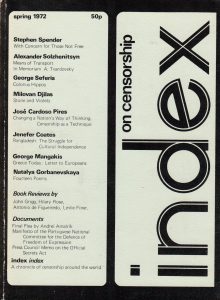
The first issue of Index on Censorship magazine, in March 1972.
You may have heard that the 70s were different. In 1972, when the first issue of Index magazine was launched, no one knew that 20 years later there would be an influential economic bloc called the European Union. The Beatles’ had only just split. The World Trade Center in New York was being built, while Sir Edward Heath was the prime minister of the United Kingdom.
Fifty years on and some things remain. Queen Elizabeth’s reign goes on and celebrates its 70th anniversary in 2022. Dictatorships and censorship, which should be trapped in history books, continue to torment the lives of many. And as a result, Index on Censorship remains vigilant, defending freedom of expression and giving voice to those who are silenced.
As we celebrate our 50th anniversary, we go back in time and remember the remarkable events that happened in 1972.[/vc_column_text][vc_custom_heading text=”1″][vc_column_text]January 30th: British soldiers shoot 26 unarmed civilians during a protest in Derry, Northern Ireland. Fourteen people were killed on this day known as “Bloody Sunday”. [/vc_column_text][vc_custom_heading text=”2″][vc_column_text]February 1st: Paul McCartney and the Wings release “Give Ireland back to the Irish” in the UK. It would be banned by the BBC, nine days later. [/vc_column_text][vc_custom_heading text=”3″][vc_column_text]February 5th: Airlines in the United States begin to inspect passengers and baggage. Tough to imagine that people traveled without any surveillance. [/vc_column_text][vc_custom_heading text=”4″][vc_column_text]February 17th: British Parliament votes to join the European Common Market. In 2020, the United Kingdom would leave the European Union. [/vc_column_text][vc_custom_heading text=”5″][vc_column_text]February 21st: Richard Nixon becomes the first US president to visit China, seeking to establish positive relations in a meeting with Chinese leader Mao Zedong, in Beijing.
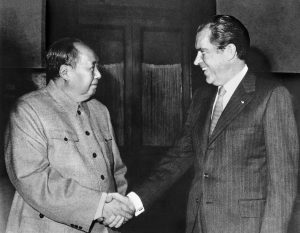
Mao Zedong and Richard Nixon during Nixon’s historical visit to China in 1972. Photo: Ian Dagnall/Alamy
[/vc_column_text][vc_custom_heading text=”6″][vc_column_text]March 15th: The Godfather, starring Marlon Brando and Al Pacino, premieres in New York. It wins Best Picture and Best Actor (Brando) at the 45th Academy Awards.
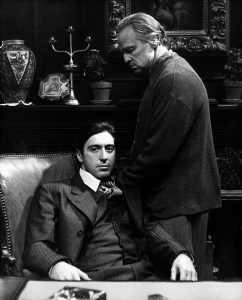
Al Pacino and Marlon Brando in the Godfather. The first film of one the most successful franchises of all time was released in 1972. Photo: All Star Library/Alamy
[/vc_column_text][vc_custom_heading text=”7″][vc_column_text]June 18th: British European Airways Trident crashes after takeoff from Heathrow to Brussels, killing all 118 people on board. [/vc_column_text][vc_custom_heading text=”8″][vc_column_text]July 1st: Feminist magazine Ms, founded by Gloria Steinem, publishes its first issue, with Wonder Woman on the cover.[/vc_column_text][vc_custom_heading text=”9″][vc_column_text]August 4th: Uganda dictator Idi Amin orders the expulsion of 50,000 Asians with British passports.
[/vc_column_text][vc_custom_heading text=”10″][vc_column_text]September 4th and 5th: 11 members of the Israeli Olympic team are murdered by a Palestinian terrorist group in the second week of the 1972 Olympics in Munich.[/vc_column_text][vc_custom_heading text=”11″][vc_column_text]September 21st: Philippines President Ferdinand Marcos declares martial law. In 2022, his son Ferdinand ‘Bongbong’ Marcos is running for president. [/vc_column_text][vc_custom_heading text=”12″][vc_column_text]October 13th: A flight from Uruguay to Chile crashes in the Andes Mountains. Passengers eat the flesh of the deceased to survive. Sixteen people are rescued two months later.[/vc_column_text][vc_custom_heading text=”13″][vc_column_text]November 30th: BBC bans “Hi, Hi, Hi”, by Paul McCartney and The Wings, due to its drug references and suggestive sexual content. [/vc_column_text][vc_custom_heading text=”14″][vc_column_text]December 7th: Apollo 17 is launched and the crew takes the famous “blue marble” photo of the entire Earth.
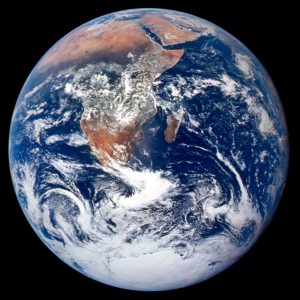
The earth seen from the Apollo 17 spacecraft. Photo: NASA/Alamy
[/vc_column_text][vc_custom_heading text=”15″][vc_column_text]December 28th: Kim Il-Sung takes over as president of North Korea. He’s the grandfather of the country’s current leader, Kim Jong-un. [/vc_column_text][vc_custom_heading text=”16″][vc_column_text]December 30th: US President Richard Nixon halts bombing of North Vietnam and announces peace talks in Paris, to be held in January 1973. [/vc_column_text][/vc_column][/vc_row]
17 Mar 22 | 50 years of Index, Afghanistan, Africa, Americas, Asia and Pacific, Bosnia, Brazil, China, Greece, Hong Kong, India, Iran, Mexico, Nigeria, Northern Ireland, Philippines, Russia, Rwanda, South Africa, Turkey, Uganda, Ukraine, United Kingdom, United States, Volume 51.01 Spring 2022 Extras
The spring issue of Index magazine is special. We are celebrating 50 years of history and to such a milestone we’ve decided to look back at the thorny path that brought us here.
Editors from our five decades of life have accepted our invitation to think over their time at Index, while we’ve chosen pieces from important moments that truly tell our diverse and abundant trajectory.
Susan McKay has revisited an article about the contentious role of the BBC in Northern Ireland published in our first issue, and compares it to today’s reality.
Martin Bright does a brilliant job and reveals fascinating details on Index origin story, which you shouldn’t miss.
Index at 50, by Jemimah Steinfeld: How Index has lived up to Stephen Spender’s founding manifesto over five decades of the magazine.
The Index: Free expression around the world today: the inspiring voices, the people who have been imprisoned and the trends, legislation and technology which are causing concern.
“Special report: Index on Censorship at 50”][vc_column_text]Dissidents, spies and the lies that came in from the cold, by Martin Bright: The story of Index’s origins is caught up in the Cold War – and as exciting
Sound and fury at BBC ‘bias’, by Susan McKay: The way Northern Ireland is reported continues to divide, 50 years on.
How do you find 50 years of censorship, by Htein Lin: The distinguished artist from Myanmar paints a canvas exclusively for our anniversary.
Humpty Dumpty has maybe had the last word, by Sir Tom Stoppard: Identity politics has thrown up a new phenonemon, an intolerance between individuals.
The article that tore Turkey apart, by Kaya Genç: Elif Shafak and Ece Temulkuran reflect on an Index article that the nation.
Of course it’s not appropriate – it’s satire, by Natasha Joseph: The Dame Edna of South Africa on beating apartheid’s censors.
The staged suicided that haunts Brazil, by Guilherme Osinski: Vladimir Herzog was murdered in 1975. Years on his family await answers – and an apology.
Greece haunted by spectre of the past, by Tony Rigopoulos: Decades after the colonels, Greece’s media is under attack.
Ugandans still wait for life to turn sweet, by Issa Sikiti da Silva: Hopes were high after Idi Amin. Then came Museveni …People in Kampala talk about their
problems with the regime.
How much distance from Mao? By Rana Mitter: The Cultural Revolution ended; censorship did not.
Climate science is still being silenced, by Margaret Atwood: The acclaimed writer on the fiercest free speech battle of the day.
God’s gift to who? By Charlie Smith: A 2006 prediction that the internet would change China for the better has come to pass.
50 tech milestones of the past 50 years, by Mark Frary: Expert voices and a long-view of the innovations that changed the free speech landscape.
Censoring the net is not the answer, but… By Vint Cerf: One of the godfathers of the internet reflects on what went right and what went wrong.[/vc_column_text][vc_custom_heading text=”Five decades in review”][vc_column_text]An arresting start, by Michael Scammell: The first editor of Index recounts being detained in Moscow.
The clockwork show: Under the Greek colonels, being out of jail didn’t mean being free.
Two letters, by Kurt Vonnegut: His books were banned and burned.
Winning friends, making enemies, influencing people, by Philip Spender: Index found its stride in the 1980s. Governments took note.
The nurse and the poet, by Karel Kyncl: An English nurse and the first Czech ‘non-person’.
Tuning in to revolution, by Jane McIntosh: In revolutionary Latin America, radio set the rules.
‘Animal can’t dash me human rights’, by Fela Kuti: Why the king of Afrobeat scared Nigeria’s regime.
Why should music be censorable, by Yehudi Menuhin: The violinist laid down his own rules – about muzak.
The snake sheds its skin, by Judith Vidal-Hall: A post-USSR world order didn’t bring desired freedoms.
Close-up of death, by Slavenka Drakulic: We said ‘never again’ but didn’t live up to it in Bosnia. Instead we just filmed it.
Bosnia on my mind, by Salman Rushdie: Did the world look away because it was Muslims?
Laughing in Rwanda, by François Vinsot: After the genocide, laughter was the tonic.
The fatwa made publishers lose their nerve, by Jo Glanville: Long after the Rushdie aff air, Index’s editor felt the pinch.
Standing alone, by Anna Politkovskaya: Chechnya by the fearless journalist later murdered.
Fortress America, by Rubén Martínez: A report from the Mexican border in a post 9/11 USA.
Stripsearch, by Martin Rowson: The thing about the Human Rights Act …
Conspiracy of silence, by Al Weiwei: Saying the devastation of the Sichuan earthquake was partly manmade was not welcome.
To better days, by Rachael Jolley: The hope that kept the light burning during her editorship.
Plays, protests and the censor’s pencil, by Simon Callow: How Shakespeare fell foul of dictators and monarchs. Plus: Katherine E McClusky.
The enemies of those people, by Nina Khrushcheva: Khrushchev’s greatgranddaughter on growing up in the Soviet Union and her fears for the US press.
We’re not scared of these things, by Miriam Grace A Go: Trouble for Philippine
journalists.
Windows on the world, by Nazanin Zaghari-Ratcliffe and Golrokh Ebrahimi Iraee: Poems from Iran by two political prisoners.
Beijing’s fearless foe with God on his side, by Jimmy Lai: Letters from prison by the Hong Kong publisher and activist.
We should not be put up for sale, by Aishwarya Jagani: Two Muslim women in India on being ‘auctioned’ online.
Cartoon, by Ben Jennings: Liberty for who?
Amin’s awful story is much more than popcorn for the eyes, by Jemimah Steinfeld: Interview with the director of Flee, a film about an Afghan refugee’s flight and exile.
Women defy gunmen in fight for justice, by Témoris Grecko: Relatives of murdered Mexican journalist in brave campaign.
Chaos censorship, by John Sweeney: Putin’s war on truth, from the Ukraine frontline.
In defence of the unreasonable, by Ziyad Marar: The reasons behind the need
to be unreasonable.
We walk a very thin line when we report ‘us and them’, by Emily Couch: Reverting to stereotypes when reporting on non-Western countries merely aids dictators.
It’s time to put down the detached watchdog, by Fréderike Geerdink: Western newsrooms are failing to hold power to account.
A light in the dark, by Trevor Philips: Index’s Chair reflects on some of the magazine’s achievements.
Our work here is far from done, by Ruth Smeeth: Our CEO says Index will carry on fighting for the next 50 years.
In vodka veritas, by Nick Harkaway and Jemimah Steinfeld: The author talks about Anya’s Bible, his new story inspired by early Index and Moscow bars.
A ghost-written tale of love, by Ariel Dorfman and Jemimah Steinfeld: The novelist tells the editor of Index about his new short story, Mumtaz, which we publish.
‘Threats will not silence me’, by Bilal Ahmad Pandow and Madhosh Balhami: A Kashmiri poet talks about his 30 years of resistance.
A classic case of cancel culture, by Marc Nash: Remember Socrates’ downfall.
17 Mar 22 | Magazine, Volume 51.01 Spring 2022
Playwright and screenwriter
Sir Tom Stoppard is a Czech-born British playwright and screenwriter who’s written for radio, stage and television.
Poet and novelist
Margaret Atwood is a multi-award winning novelist, essayist, poet and activist from Canada.
Entrepreneur and activist
Hong Kong entrepreneur and activist Jimmy Lai is the founder of media company Apple Daily. He was arrested in 2020 on charges of violating Hong Kong’s national security law.
15 Mar 22 | News and features, Russia, Ukraine
Vasyl Symonenko (1935-1963), a Ukrainian dissident poet, died after a brutal attack by the Soviet police in Smila, Cherkasy Oblast, Ukraine. His death was likely connected to his interest in the mass graves at Bykivnia forest outside Kyiv, where the Soviet regime buried tens of thousands of its victims. His poem To A Kurdish Brother can be read as a call to his Ukrainian compatriots to rise against the Soviet regime. The Soviets had committed genocide against Ukrainians during the 1930s, exterminating millions of them during the Holodomor, a forced famine accompanied by mass executions. In the post war period the regime was slowly choking the remains of Ukrainian identity under the guise of “internationalism” by assimilating Ukraine’s people into Russian culture. Putin’s war is the Russian empire’s final effort to destroy Ukrainian identity, but it relates directly to hundreds of years of oppression.
To A Kurdish Brother
by Vasyl Symonenko
Fight… and overcome! Taras Shevchenko
The mountains cry, drenched in blood,
The battered stars fall down:
The fragrant valleys gouged and wounded,
Where chauvinism’s hunger tears in.
Oh, Kurd, conserve your ammo,
But don’t spare the lives of murderers.
Fall as a whirlwind of blood now
On these pillaging lawless bastards.
.
Only talk to them with bullets true:
They did not come just to take all you own,
But for your name and language too
And leave your son an orphan.
The oppressor will “rule” while you haul the cart
So you cannot consent to live with them
Drinking the blood of oppressed peoples they grow fat
For chauvinism is our most savage foe.
He will do anything, so that you submit,
He has betrothed treachery with shame,
Oh, Kurd, conserve each bullet,
For without them you won’t save your kin.
Do not lull to sleep the power of your hate,
Until the last chauvinist on the planet falls,
Into their open grave, only then take
Tenderness as your motto, however it calls.
—
Lina Kostenko was born into a family of teachers on 19 March 1930 in Rzhyshchiv, Ukraine. According to this poem, she wrote her first poem on the walls of a dug-out in World War II. It’s unlikely that this is poetic licence. Kostenko is a poet who is both highly literary, mixing references to Shakespeare and Gogol, but also very honest and accessible. That first poem written as shells fell around her has not survived so what we have instead is a poem about writing a poem. It is a powerful piece that speaks to the plight of children in war. She is currently seeing her country being invaded and shelled by another brutal dictator who, like Hitler and Stalin, wants to destroy the Ukrainian nation. Putin is committing war crimes and has displaced hundreds of thousands of refugees.
My first poem was written in a dug out
On a wall loosened by explosions
When stars were lost in the horoscope:
Though my childhood was not slain by war.
The fire poured its lava,
Stood in the grey craters of orchards,
Our path choked by water
In deranged barrages with flames
The world once bright now dark
That burning night illuminated to its depth
The dug out like a submarine
In a sea of smoke, fear and flame.
There is no longer rabbit or wolf there
Just a world of blood, carbonised star!
I wrote almost in shrapnel
Block capitals from the child’s primer.
I would still play in the dark and in classes
I flew on the wings of book covers in stories
And wrote poems about landmines
Having already seen death so close.
The pain of first unchildish impressions
What trace left on the heart
Verses do not say what I cannot speak
Have they not left mute the spirit?
The spirit in words is the sea in a periscope
And its memory, light refracted from my temple
My first poem, was written in a dug out
Simply imprinted on the soil.
Both poems translated from the Ukrainian by Stephen Komarnyckyj
14 Mar 22 | China, Hong Kong, News and features
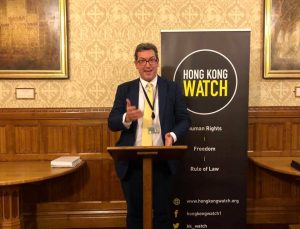
Hong Kong Watch’s Benedict Rogers. Credit: Hong Kong Watch
Benedict Rogers was surprised when he heard that he’d been accused by police in Hong Kong of jeopardising China’s national security and threatened with jail time under the draconian National Security Law. The chief executive of Hong Kong Watch, a charity that campaigns for human rights in the former British colony, told Index that while he knew there was an extra-territorial element to the law, he didn’t believe “they’d go this far”.
Three weeks ago Rogers learnt that the website attached to Hong Kong Watch had been blocked in Hong Kong. After making enquiries about why he received letters back charging him under the law.
“I guess the letters I received were an answer to the inquiry,” he said.
Passed in the summer of 2020, the National Security Law caused global outcry in its implications for freedoms in Hong Kong as it effectively made any form of dissent illegal. But it was not just the punishment for dissent within its borders that caused alarm – even those outside Chinese territory could be charged with breaking it. Index wrote about the law at the time, calling it a “devastating blow to Hong Kong’s autonomy”.
Approaching two years since its passage, scores of arrests and prison sentences have been handed out to protesters and journalists in Hong Kong. This though is the first time the law has been used against an advocacy group outside of Hong Kong.
Rogers is a British human rights activist and journalist based in London. In addition to his work at Hong Kong Watch, he is co-founder and deputy chairman of the Conservative Party’s human rights commission, a member of the advisory group of the Inter-Parliamentary Alliance on China and an advisor to the World Uyghur Congress.
The action is a clear attempt by Beijing to make anyone, anywhere feel vulnerable. They want to reinforce the message that no corner of the globe is beyond their reach, something we have been reporting on recently in our series Banned by Beijing. That it comes on the back of the Hong Kong Watch website being shut down is another worrying sign that Beijing is trying to shape Hong Kong – which does not have a Great Firewall – in its own image.
Rogers says he is not concerned for his own safety and that he has already taken measures to protect those he does communicate with inside Hong Kong, measures that he will take even further now. He sees it as another “sad deterioration in the Hong Kong situation”.
Today our fears lie with all those who want to promote respect for free speech and human rights within China and Hong Kong and might not do so following this message. People in Hong Kong itself already live with the daily fear of repercussions as they see more and more of their friends, relatives and associates being arrested and jailed. We don’t want this fear to infect those outside, to stop them honestly reporting on the situation and communicating with those inside. We need a united front to campaign against Beijing’s actions.
We are also fearful for those in other authoritarian countries around the world. The move comes less than a fortnight after Russia passed its “fake news” law to imprison anyone inside Russia criticising the war in Ukraine. Putin passed this law overnight. We fear he could look to Beijing and decide to extend it to critical voices outside the country, who are playing such a crucial role in revealing the horrors of Ukraine and holding him to account.
Echoing our concerns, Lord Patten of Barnes, the last British Governor of Hong Kong and a patron of Hong Kong Watch, said:
“This is another disgraceful example of Mr Putin’s friends in Beijing and their quislings in Hong Kong trying not only to stamp out freedom of expression and information in Hong Kong but also to internationalise their campaign against evidence, freedom and honesty.”
UK Foreign Secretary Liz Truss has called it “unjustifiable”.
“Attempting to silence voices globally that speak up for freedom and democracy is unacceptable and will never succeed,” she said.
Rogers, who spoke to Index in 2017 about threatening letters he received from Hong Kong to his London home (also sent to his neighbours’), says the last four to five years has seen a succession of threats including letters and emails, with this action being the latest and most extreme. Still, he says he will not let this attack silence him.
“We’re not going to take the website down. We’re needed more than ever,” he told Index.









